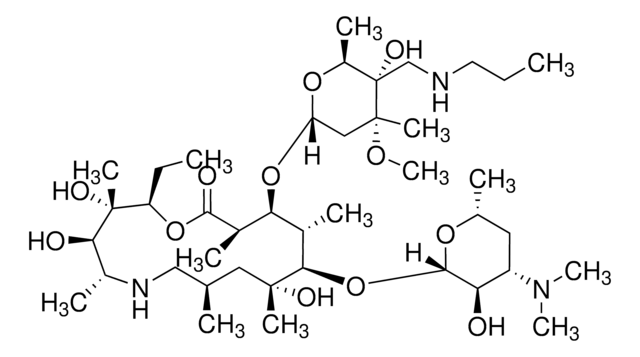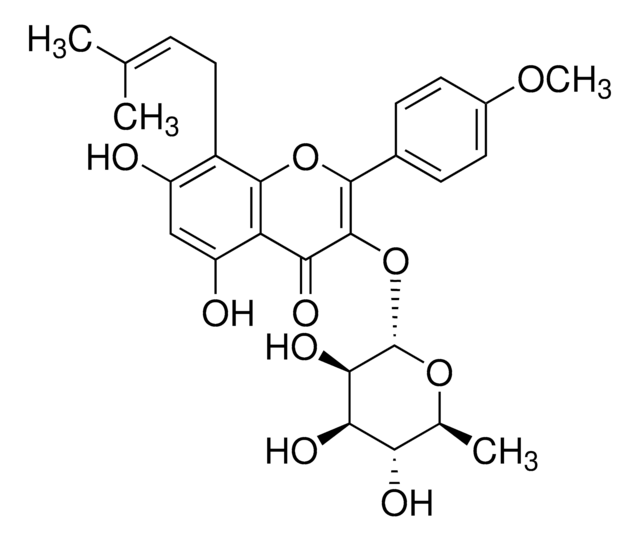80198
Methoxatin disodium salt
≥97.0% (HPLC)
Synonym(s):
PQQ, Pyrrolo-quinoline-quinone disodium salt
About This Item
Recommended Products
biological source
fermentation/recombinant
Quality Level
Assay
≥97.0% (HPLC)
form
powder
color
red-brown to deep orange
red-brown to deep red-brown
storage temp.
2-8°C
SMILES string
OC(=O)c1cc(nc2C(=O)C(=O)c3cc([nH]c3-c12)C(=O)O[Na])C(=O)O[Na]
InChI
1S/C14H6N2O8.2Na/c17-10-4-2-6(14(23)24)15-8(4)7-3(12(19)20)1-5(13(21)22)16-9(7)11(10)18;;/h1-2,15H,(H,19,20)(H,21,22)(H,23,24);;/q;2*+1/p-2
InChI key
UFVBOGYDCJNLPM-UHFFFAOYSA-L
General description
Application
- Safety assessment of a novel, dietary pyrroloquinoline quinone disodium salt (mnemoPQQ): This study investigates the safety profile of Methoxatin disodium salt, which has implications for its application in assay development for clinical and diagnostic purposes. Specifically, it addresses the compound′s use in dietary supplements and potential crossover into clinical assays where safety and toxicity are paramount (Shiojima et al., 2022).
Biochem/physiol Actions
Storage Class Code
11 - Combustible Solids
WGK
WGK 3
Flash Point(F)
Not applicable
Flash Point(C)
Not applicable
Personal Protective Equipment
Certificates of Analysis (COA)
Search for Certificates of Analysis (COA) by entering the products Lot/Batch Number. Lot and Batch Numbers can be found on a product’s label following the words ‘Lot’ or ‘Batch’.
Already Own This Product?
Find documentation for the products that you have recently purchased in the Document Library.
Our team of scientists has experience in all areas of research including Life Science, Material Science, Chemical Synthesis, Chromatography, Analytical and many others.
Contact Technical Service







